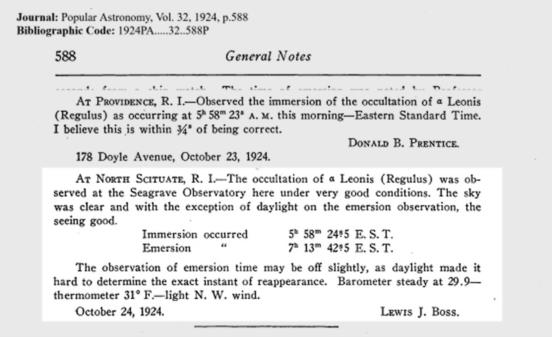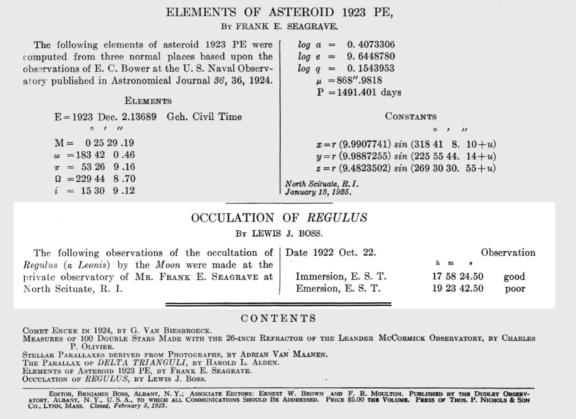
NavList:
A Community Devoted to the Preservation and Practice of Celestial Navigation and Other Methods of Traditional Wayfinding
From: Frank Reed
Date: 2023 Oct 19, 07:26 -0700
Does refraction impact the timing of solar eclipse contacts? That's an interesting question in another running message thread. Consider a related problem that may be more relevant here since it was once a practical method related to high-accuracy position-finding: does refraction affect the timing of a stellar occultation? If the limb of the Moon glides along and covers (occults) some star, the exact time is impacted by a number of interesting small factors. The lunar limb comes into play. How much? It depends on the mountains and valleys! But does refraction impact the exact timing of a lunar occultation?
About an hour ago, I stumbled upon some interesting published results. Let's consider these observations made right here in little Rhode Island back in the 1920s (what year? Hmm...). In particular there are observations at the Seagrave Observatory in central Rhode Island west of Providence. It's still there, and it's owned and operated by a thriving astronomy club. I did a presentation at that observatory on lunars a decade ago, and I had chance to look through the beautiful old Clark refractor. That instrument would have been used to observe occultations.
Attached are two accounts of observations made at the Seagrave Observatory. See if you can puzzle them out. How good were the observations? How do they compare with modern calculated times (which are guaranteed to be accurate to a fraction of a second)? You may notice something odd.
Frank Reed
Clockwork Mapping / ReedNavigation.com
Conanicut Island USA








